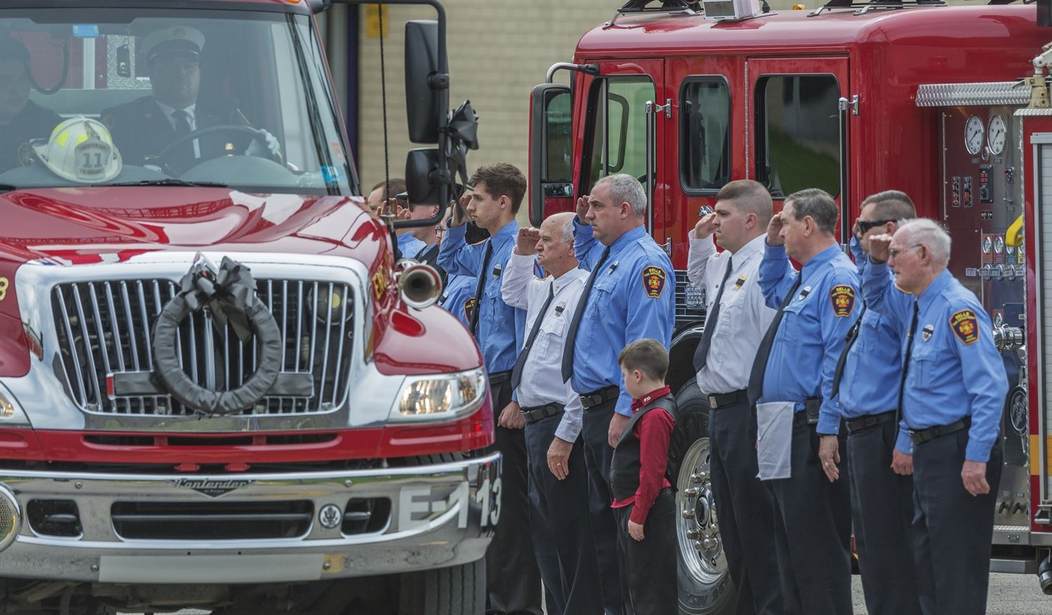New Mexico Democratic Governor Michelle Grisham was recently excited to announce that the state's Environment Department was awarding a nearly half-million dollar grant to Bernalillo County to partially finance the purchase of a new "all-electric" fire truck for their fire department. It was only a "partial" reimbursement because the projected cost to the county to replace its 1991 diesel fire engine with a Pierce Volterra battery electric fire engine was more than $1.8 million. The local fire chief was quoted as proudly saying, "There’s no cancer coming out of the tailpipe" of the new truck. So that's a win for all concerned, right?
Not so fast there, chief. You have to read quite a ways down into the announcement to learn the uncomfortable truth about this purchase. The supposedly "all-electric" fire engine has a diesel engine in it. The pumps that actually deliver the water to put out fires run off of the diesel engine and the truck itself can run off of diesel when the battery inevitably runs out. So the entire description of "all-electric" is a farce. (MSN)
Viewers could be forgiven for thinking that the new fire trucks were all electric and zero emissions. They'd be wrong. All the fire trucks also have a diesel engine and a tailpipe releases those "cancer-causing particulates."
When the first Pierce Volterra Electric Fire Truck rolled out in Madison, Wisconsin, the vehicle was repeatedly called "all electric" or "zero emissions." You had to listen 8 minutes into the presentation to get to the part where a fire chief admits there's an internal combustion engine for pumping water on a fire.
Perhaps journalists and fire department spokespeople were misled by Pierce Manufacturing's web site ,which reads in bold headline type: "Zero Emissions. Zero compromises."
So why would these fire trucks still have diesel engines? They're supposed to be eliminating fossil fuels to save us all from climate change, aren't they? The answer should be fairly obvious. These are emergency response vehicles. If your neighbor's EV can't make it out of the driveway one morning because they couldn't find a charging station or there was a blackout, they might miss a day of work. If the fire truck can't do its job, buildings will burn down and people may die. It's simply not worth the risk.
The water pumps on the fire trucks are massive. They have to be to move that much water so quickly over a sustained period of time. Also, the engine that powers the vehicle is far larger than the ones in most consumer vehicles, on par with the ones in big rigs. If there is a significantly large fire taking place, the pumps may be running for hours on end. EV batteries simply are not up to the job. If a conventional fire truck begins running low on diesel, a refueling truck can be brought over to fill up the tank in a few minutes. You can't accelerate the battery recharging process.
Here is another fun fact about these trucks, as pointed out by Larry Behrens, Communications Director for Power The Future. Those "all-electric" fire trucks cost 40 to 50 percent more than conventional, diesel models. The one that Bernalillo County purchased cost $1.8 million. That's roughly $600,000 more than standard diesel truck costs and that bill was saddled on the taxpayers of the county as well as the entire state thanks to the Governor's "generous" grant. (It's funny how these politicians are always able to be so generous with your money, isn't it?)
The money in question was provided as part of the Diesel Emissions Reduction Act passed back in 2005. The EPA has spent billions of dollars on supposedly eliminating diesel engines, and funding for the program was renewed as part of the Bipartisan Infrastructure Act passed during the Biden administration. They love to tout how well they are obeying the dictates of the Climate Goddess when it comes to the vehicles used by first responders. But the cold, hard reality is that there are no "all-electric" emergency response vehicles of this type. That's because EVs simply aren't up to the demands of the job. Municipal budgets are being strained all over the country these days. Should we really be driving up costs in this fashion for "all-electric" vehicles that actually rely on good-old diesel fuel?







Join the conversation as a VIP Member